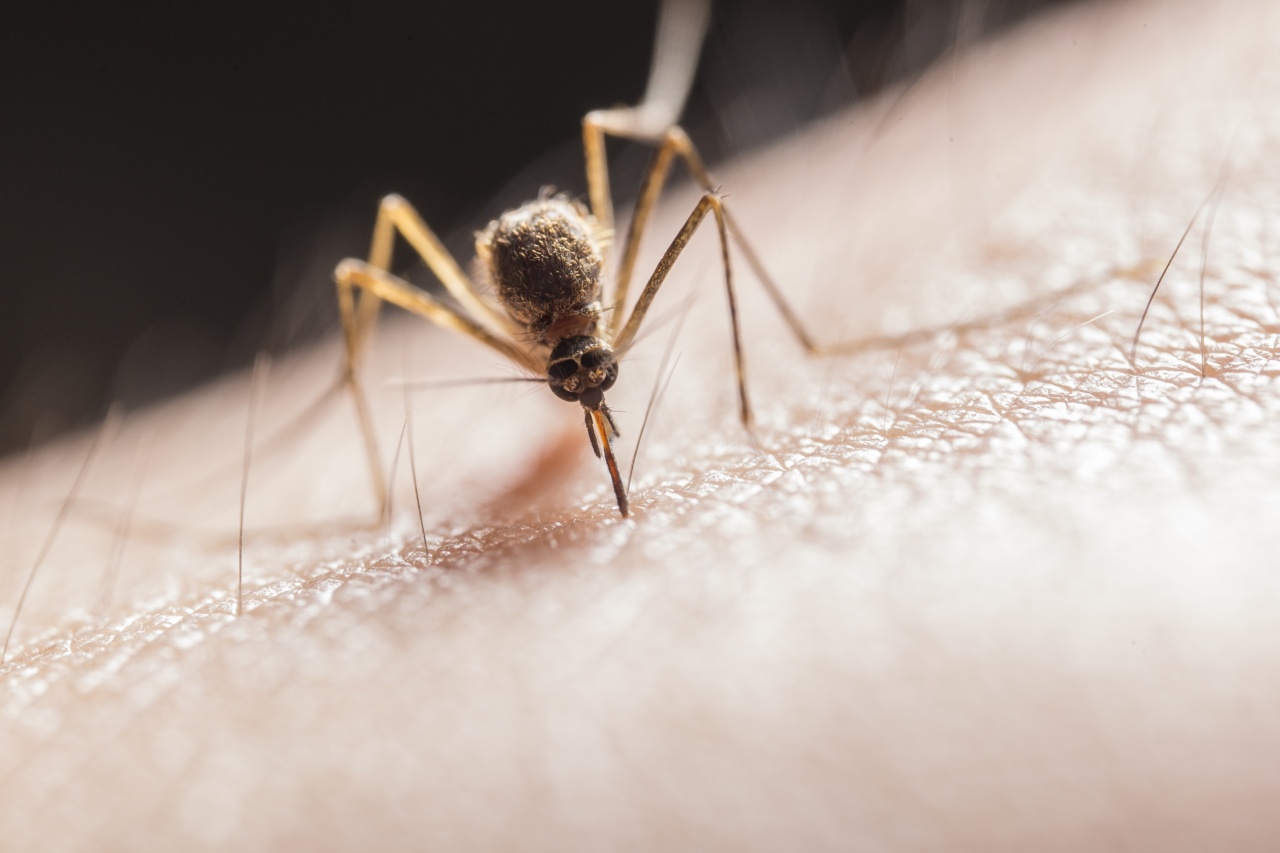Mosquitoes are notorious blood-sucking insects that have plagued humanity for centuries. These tiny pests are known for their high-pitched buzzing sound as they hover near our ears, sending shivers down our spines.
A mosquito bite may seem like an irritating inconvenience, causing nothing more than a small, itchy bump on the skin. However, there’s more to these bites than meets the eye.
1. Allergic Reactions
For most people, a mosquito bite results in a red, itchy welt that may disappear after a few days. However, some individuals have an allergic reaction to mosquito saliva, which can cause more severe symptoms.
These reactions may include excessive swelling, blistering, and even anaphylaxis in rare cases. It’s important for those prone to allergies to take necessary precautions to avoid mosquito bites.
2. Transmission of Diseases
Unfortunately, harmless as they may seem, mosquitoes are infamous vectors of various diseases. Malaria, dengue fever, Zika virus, West Nile virus, and chikungunya are just a few examples of the diseases transmitted by mosquitoes.
These tiny creatures have the uncanny ability to pick up disease-causing microorganisms from one host and transfer them to another during blood meals. This transmission poses a significant threat to global health, causing millions of illnesses and deaths each year.
3. Emotional Impact
The constant annoyance of mosquito bites can take a toll on one’s emotional well-being. The persistent itching, discomfort, and frustration can lead to irritability, anxiety, and decreased quality of life.
Additionally, the fear of contracting diseases from mosquitoes can instill a sense of fear and paranoia, especially in regions where mosquito-borne illnesses are prevalent. The psychological effects caused by these seemingly harmless bites should not be underestimated.
4. Allure for Mosquitoes
While mosquito bites affect most people, some individuals seem to attract mosquitoes more than others. Studies have indicated that genetics, body odor, and even blood type play a role in attracting mosquitoes.
People with type O blood are believed to be more attractive to mosquitoes due to the particular odor emanating from their skin. This fascinating yet unsettling fact explains why some individuals are more prone to mosquito bites than others.
5. Scarring and Hyperpigmentation
Although most mosquito bites heal without leaving any lasting marks, some individuals develop scars, especially if they scratch excessively. These scars can be particularly troublesome when they occur on visible body parts like the face and arms.
Additionally, mosquito bites can sometimes cause the skin to darken, leading to hyperpigmentation. These skin changes can persist for weeks or even months after the initial bite.
6. Secondary Infections
Constant scratching of mosquito bites can break the skin, providing an entry point for bacteria. Secondary infections can occur, leading to symptoms such as redness, warmth, swelling, and pain around the bite site.
In severe cases, these infections may require medical intervention, including antibiotics or antiseptic treatment. It is crucial to resist the urge to scratch mosquito bites to minimize the chances of secondary infections.
7. Nocturnal Disturbances
Mosquitoes are primarily active during the twilight hours, making their presence known at night when most individuals are trying to sleep.
The high-pitched buzzing and relentless biting can result in disturbed sleep patterns, sleep deprivation, and fatigue. Lack of quality sleep can have a cascading negative effect on overall health and well-being. Protecting yourself from mosquito bites during bedtime can contribute significantly to a restful night’s sleep.
8. Economic Impact
The economic impact of mosquito bites and the diseases they transmit cannot be understated. In regions where mosquito-borne illnesses are prevalent, healthcare systems bear a significant burden in treating affected individuals.
Additionally, these diseases lead to absenteeism from work and reduced productivity, affecting local economies. Investing in mosquito control measures is not only essential for public health but also for the economic development of communities.
9. Lifesaving Innovations
The harm caused by mosquito bites has spurred innovations in mosquito control and disease prevention. Efforts such as mosquito nets, insect repellents, and insecticide-treated clothing have successfully reduced mosquito-borne diseases globally.
Ongoing research aims to develop vaccines against diseases like malaria and dengue fever, further alleviating the impact of mosquito bites on human health.
10. Environmental Impact
Mosquitoes have a profound impact on the environment as well. They serve as a food source for various animals, including birds, bats, and other insects.
Removing mosquitoes entirely from ecosystems could disrupt food chains and have unforeseen consequences on the overall balance of ecosystems. While controlling mosquito populations is crucial for human health, it is equally important to consider the potential environmental ramifications of these efforts.






























